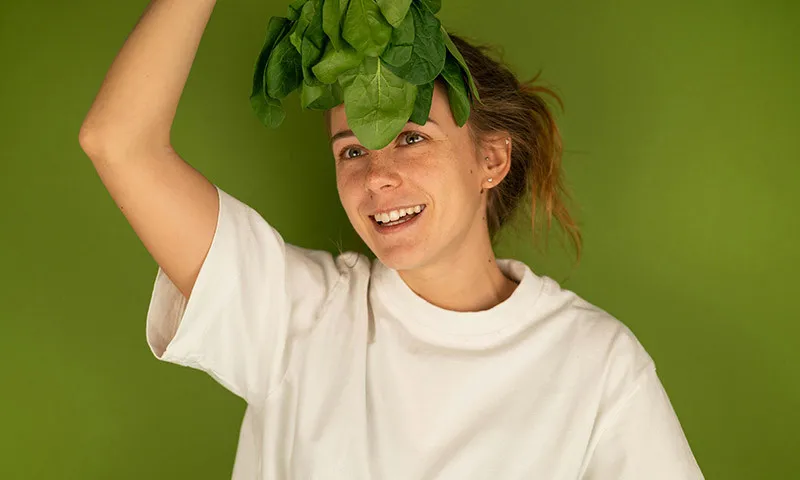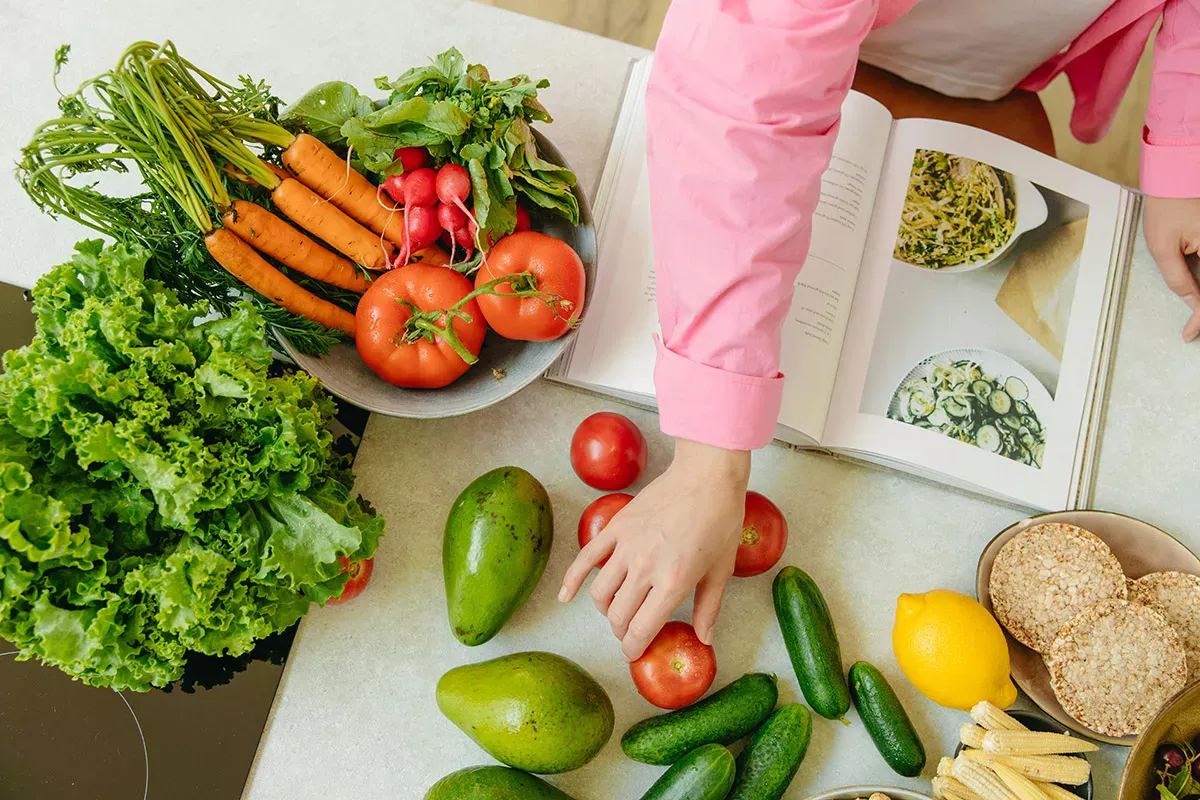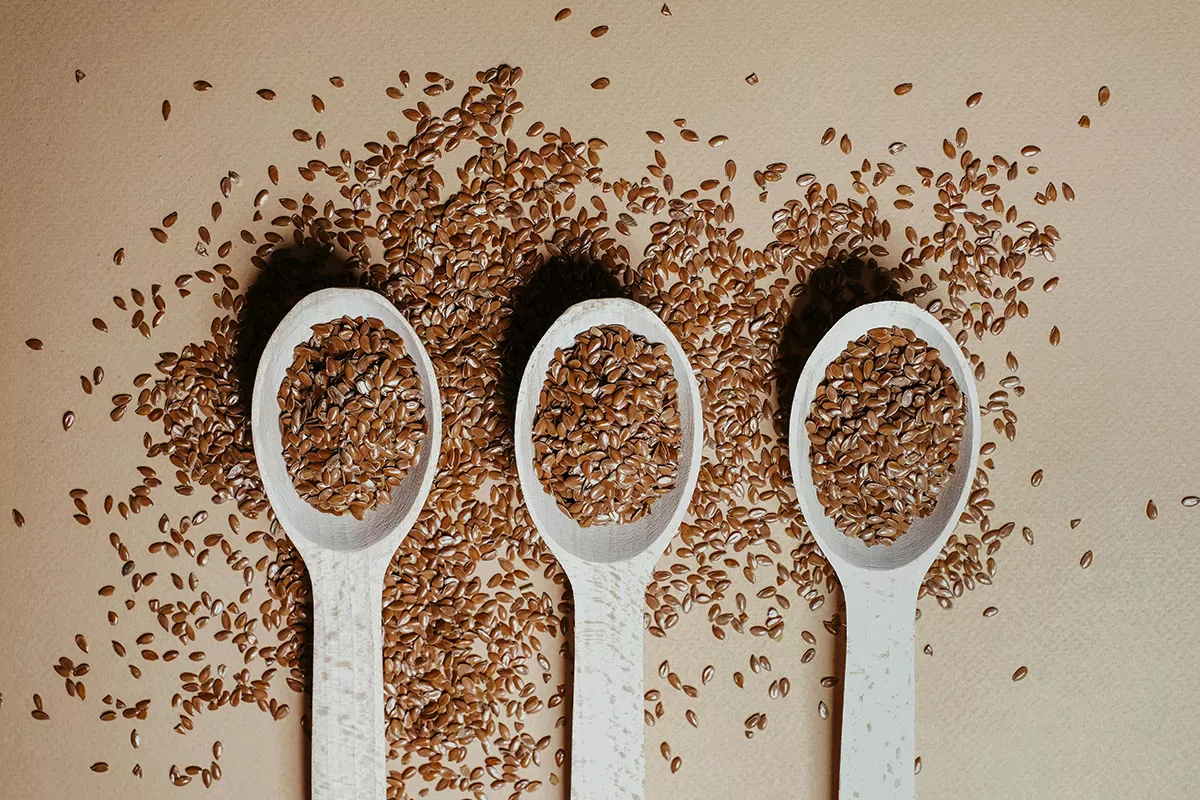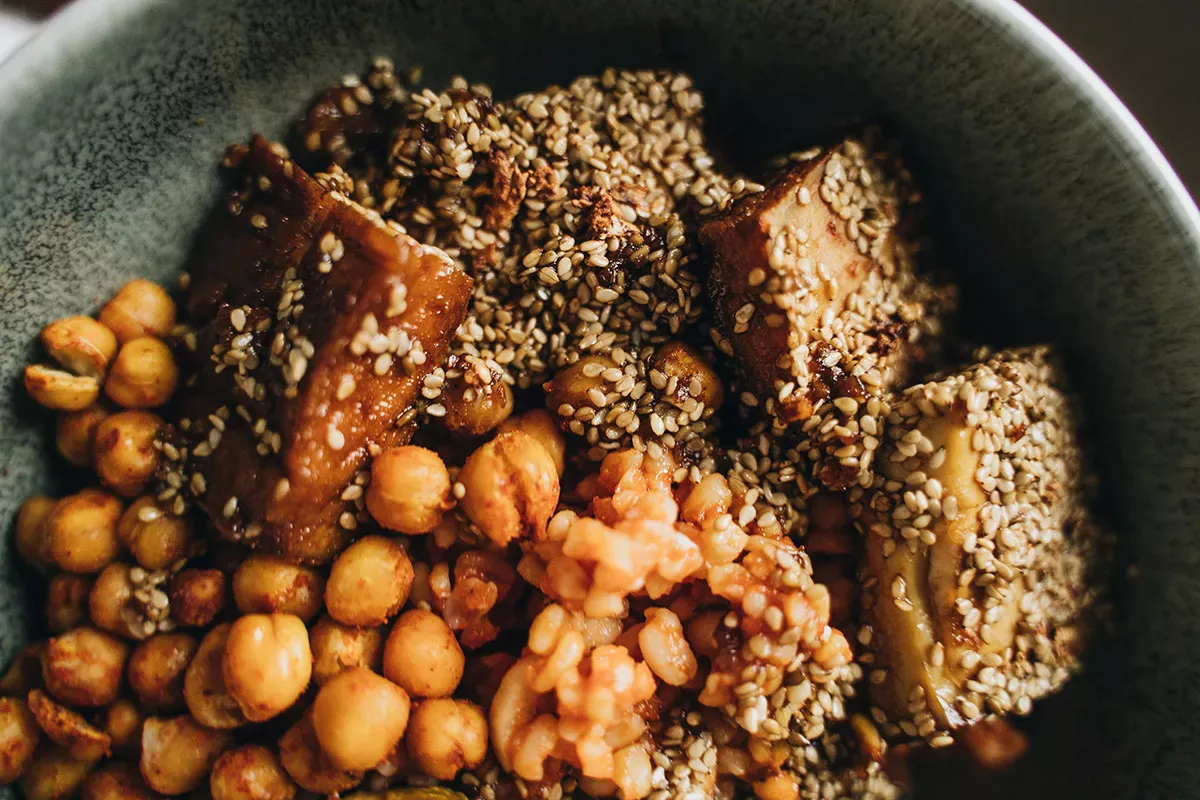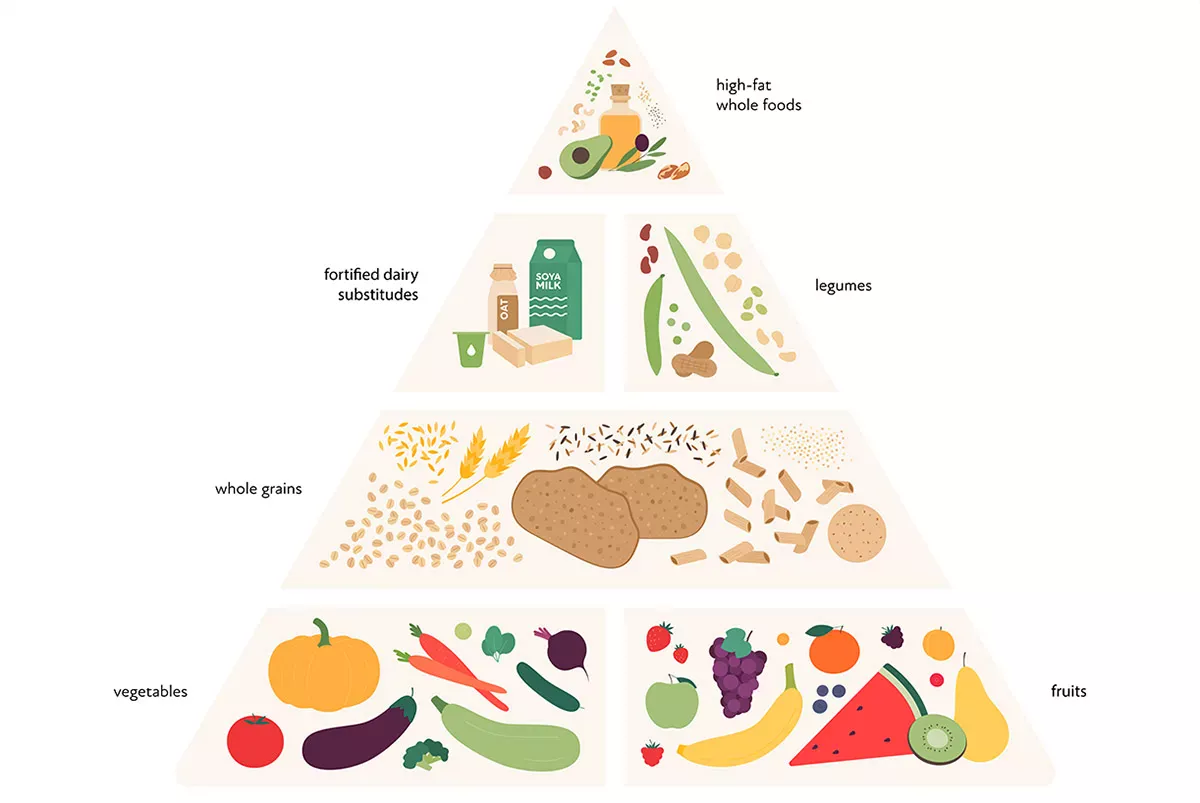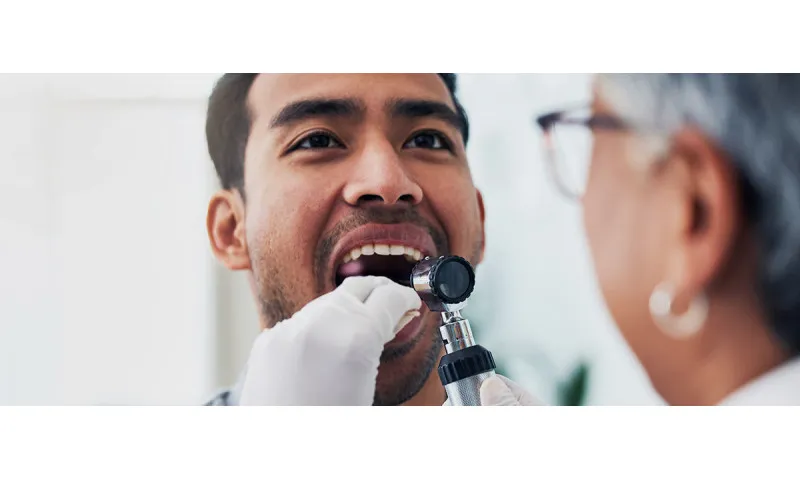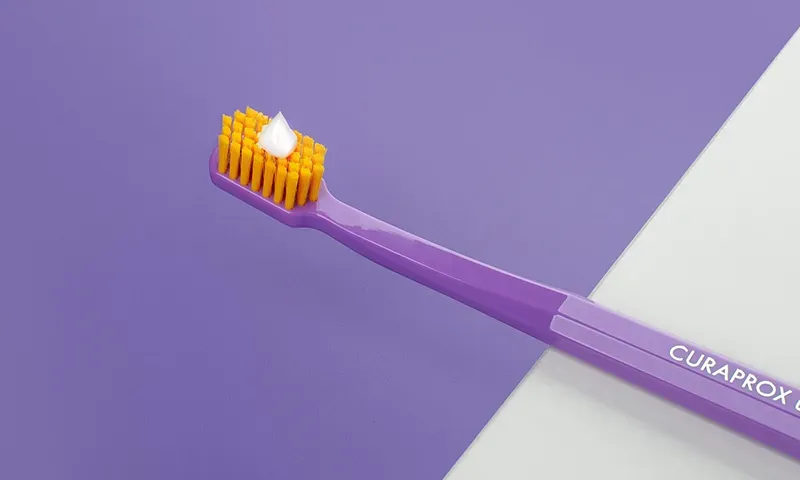What does it mean to eat vegan?
Those who follow a vegan diet do not eat meat and fish, but also all other animal products such as milk, butter, honey and eggs. Vegans therefore only eat plant-based foods.
Many people do this primarily for ethical reasons - to protect animals and the environment. For them, being vegan is not just a form of nutrition, but a philosophy of life. However, health also often plays a major role.
But how healthy is the vegan diet really? The German Nutrition Society (DGE) expresses itself cautiously here. It says that a vegan diet "can be a health-promoting diet for the healthy adult general population alongside other diets, provided that a vitamin B12 supplement is taken." Another prerequisite is a "balanced, well-planned food selection and a needs-based intake of the potentially critical nutrients. The DGE is not prepared to make a recommendation for or against a vegan diet.
Is vegan diet healthy? Prevent defects in a targeted manner
As you have read above, a vegan diet is only considered healthy if you artificially supplement some nutrients. This is important because eating vegan severely limits your food choices. This increases the risk that you are not getting enough of all the important nutrients. This applies in particular to the following:
- Iron and iodine (if you do not eat meat)
- Calcium (when avoiding milk and dairy products)
- Omega-3 fatty acids (if you do not eat fish)
- Zinc
- Selenium
- B vitamins - especially vitamin B12, but also vitamin B2
You can prevent deficiency symptoms. Here we give you an overview of what you should look out for:
Vitamin B12 - why is it so important?
If you don't eat animal products, you need to be particularly careful that you don't develop a deficiency of B vitamins, especially vitamin B12. This important vitamin is found almost exclusively in animal foods, and if our body is deficient, this can have far-reaching consequences. The following complaints can arise:
- Anaemia (macrocytic anaemia) with symptoms such as pale skin, weakness and dizziness
- Damage to the spinal cord and brain with symptoms such as tingling and burning mainly in the hands and feet, unsteady stance and gait and a tendency to fall
- Declining performance
- Memory disorders
- Depressive moods
The good news: thanks to appropriate food supplements for vegans, you can get a good supply of vitamin B12.
Iodine - even non-vegans often do not have an adequate supply
Iodine is a vital trace element that our body cannot produce itself. We must therefore obtain it from food. Our thyroid gland can only function optimally with a sufficient supply. If it does not, this has a negative impact on many metabolic processes, which in turn is detrimental to normal growth, bone and brain development and the regulation of our body's heat balance.
In fact, the iodine supply in the general population is not the best. According to the Federal Ministry of Food and Agriculture, 32 per cent of adults and 44 per cent of children and adolescents in Germany have an increased risk of iodine deficiency. In addition to iodised salt, seafood such as sea fish as well as milk and dairy products are important sources of iodine. All of this is omitted in a vegan diet.
Vegans can cover their iodine requirements in other ways. These are possible:
- Iodine-enriched plant drinks
- Iodised table salt
- Sea salt mixed with seaweed with a defined iodine content
Important to know: The Federal Institute for Risk Assessment (BfR) classifies dried algae products with an iodine content of more than 20 milligrams per kilogram as harmful to health.
Good to know:
We tend to ingest too little iodine - but it can be different with fluoride. It is estimated that a quarter of the world's population has fluorosis, which is characterised by white spots on the teeth. Does this mean it's better to use fluoride-free toothpaste when brushing your teeth? Find out here:
Iron - is not only found in meat and sausage, but also in plant-based foods
If we take in too little iron, we can develop anaemia in the long term, which can lead to a lack of oxygen. We then become tired, get headaches and find it harder to concentrate. Iron also plays an important role in our immune defence. If we have too little of it, we can no longer fight pathogens optimally.
Iron is found in meat and sausage - a taboo for vegans, of course! However, they can still cover their iron requirements. However, it is important to know that the body can utilise iron from animal foods better than iron from plant foods.
Plant foods with iron content are:
- Pulses (beans, lentils, peas, chickpeas)
- Wholemeal products (especially in millet and wholemeal bread made from sourdough)
- Amaranth and quinoa (South American pseudocereals)
- Nuts and seeds (sesame, poppy seeds, pistachios, sunflower seeds)
- Dried fruit (peaches, apricots, figs)
- Green vegetables (broccoli, kale, pak choi)
Zinc - deficiency can be prevented with plant-based foods
If we don't have enough zinc in our bodies, it can be very harmful. A deficiency can lead to the following symptoms:
- Disturbed length growth
- Skin eczema
- Diarrhoea
- Wound healing disorders
- Perception problems
- Clouded memory
Good sources of zinc are meat, fish, eggs and dairy products - not for vegans. However, you can confidently fall back on pulses, wholemeal products and nuts. But the same applies here as with iron: we can absorb zinc better from animal products than from plant products.
Calcium maintains bones and teeth - and can even be found in mineral water
Calcium is a very important mineral for us; in fact, it is the most vital for us. As a building material, it keeps our bones and teeth strong. Calcium is also necessary for blood clotting, muscle excitation and nerve stimulation. The number one source of calcium is milk and dairy products (only quark is not included). Unfortunately, vegans again lose out here. However, they can switch to certain vegetables such as broccoli, kale and rocket. They can also increase their intake of calcium-rich mineral water. And: certain nuts are also at the forefront here: hazelnuts and Brazil nuts are rich in calcium. However, it is important to know that Brazil nuts are not always recommended. You should not eat more than two of them a day, as they also accumulate radioactive radium.
Good to know:
Calcium is important for strong teeth and bones. However, older people in particular often suffer from a deficiency. This can increase the risk of osteoporosis. What exactly is osteoporosis? And why do sufferers sometimes develop osteonecrosis of the jaw? You can read about it here:
Osteoporosis and osteonecrosis of the jaw: treatment and prevention
Selenium - can be easily absorbed from plant foods, just not too much!
Selenium is a component of enzymes and is important for many processes in our body - for example, for protection against cell damage caused by radicals. The most reliable source of selenium is animal-based foods such as meat, fish and eggs. Vegans, on the other hand, can switch to:
- Brazil nuts (no more than two a day)
- Cabbage and onion vegetables
- Mushrooms
- Asparagus
- Pulses
People who follow a vegan diet can cover their selenium requirements through their diet with a little planning. Simply taking a nutrient supplement is not a good idea. If you take too much selenium on a long-term basis, you can develop symptoms such as tiredness, nausea, diarrhoea, joint pain and neurological disorders.
Omega-3 fatty acids - found in certain vegetable oils
Omega-3 fatty acids belong to the so-called polyunsaturated fatty acids. They are said to have a whole range of health benefits - they are a building block of our cell membranes and keep the cell envelopes supple, which is important for our nerve cells. Omega-3 fatty acids are also important for the brain development of children during pregnancy and are even said to be able to prevent Alzheimer's disease. Whether strengthening our immune defences, reducing inflammation or regulating blood pressure - omega-3 fatty acids are something of a miracle weapon for us. That's why we should get enough of them.
Fish is particularly rich in it - salmon, herring, mackerel and anchovies to be precise. Fortunately, vegan diets can switch to plant-based sources. Linseed, hemp and walnuts, for example, are rich in omega-3 fatty acids. They can also be found in linseed oil, rapeseed oil and margarine.
Interim results: How healthy is a vegan diet?
As you have just learnt, there are a few things to consider when eating a vegan diet in order to prevent deficiencies. The good news: it is possible! With the right knowledge and good shopping planning, you can avoid meat and animal products without any health disadvantages. It is also important to know that you need to keep an eye on your protein requirements. Your body is less able to absorb protein from plant-based foods than from animal products. That's why nuts and pulses, for example, should be part of your daily diet.
Good to know:
Are you familiar with the concept of "clean eating"? It has a number of overlaps with the vegan diet. For example, advocates of this method avoid animal fats. They also try to avoid processed foods completely. You can find out all about it here:
Focus: Vegan nutrition and dental health
Vegans often feel confronted with the accusation: "You don't drink milk? Then your teeth and bones lack calcium!" However, as you have already learnt above, you can compensate for this very well with certain plant-based foods. Does this also mean that your teeth won't suffer from a vegan diet?
Unfortunately, there is no general answer to this question. But what can be said is this: As a rule, vegans eat more fruit and vegetables. These foods undoubtedly have their health benefits - but they are also full of fructose and many of them stick particularly well to the teeth; these include bananas and dried fruits such as sultanas, dates and figs. This unpleasant combination of stickiness and fructose increases the risk of developing tooth decay. And that's not all: fruit also contains a lot of fruit acids (lemon is at the forefront), which attack our tooth enamel.
However, eating fruit also has an advantage: if you eat firm varieties of fruit, such as an apple, you increase the flow of saliva by chewing. Saliva supplies minerals to the tooth enamel. It also "flushes" sugar and acids out of the oral cavity, helping to prevent tooth decay.
In general, however, it can be said that vegans who don't want to neglect their dental health should eat more vegetables than fruit. But if you can't do without a piece of delicious melon or a handful of grapes, you shouldn't and don't have to. However, it is then particularly important not to forget oral hygiene. But be careful! Don't immediately reach for your toothbrush and toothpaste. After eating fruit containing fruit acid, the tooth enamel is soft and can be damaged by brushing. It is better to wait about half an hour - then the concentration of harmful substances will have decreased.
Good to know:
"Anyone can brush their teeth!" Really? Here you will find precise step-by-step instructions for the - scientifically proven - best technique with pictures and helpful background information:
Meat substitute products: Often contain a lot of sugar!
Always "only" vegetables on the plate can be a bit monotonous in the long run. Many vegans therefore like to use meat substitutes so that they can eat a "sausage" or "schnitzel" at a barbecue. In addition to these meat substitutes, there are many other products that vegans can use to spice up their diet: Almond drinks, spreads, yoghurt, cheese and even scrambled egg alternatives. But caution is advised here. Sometimes a lot of fat and sugar is added to these products. And as we know: Sugar is bad for your teeth.
In general, meat substitutes should not be demonised, but you should choose them carefully and not eat them every day. It is healthier to opt for pulses and use them to make delicious patties or a vegetarian bolognese, for example. It is also advisable to use the classics of Asian cuisine: tofu, tempeh or seitan. Not only do they have a high protein content, they are also less processed than meat substitutes.
Vegan toothpaste: not automatically environmentally friendly
Have you ever consciously read through the ingredients of a toothpaste that are printed on the tube? It's fascinating how many different active ingredients there often are! Many of them are animal ingredients. You could even say that this is the rule rather than the exception. Nevertheless, you can also find vegan variants in every drugstore. One of these is the 'Be you' toothpaste from Curaden. In the six-key pack (plus toothbrush) from Curaprox, you get six variants with different fruity flavours. Here you can be sure: no animal products are included. And, of course, no harmful SLS, triclosan or microplastics.
Ever heard of them? There are vegan professional dental cleanings
For many people, veganism goes far beyond diet. In addition to consuming animal-based foods, they also avoid leather, wool and cosmetic products with animal ingredients, for example. They also make sure that they do not come into contact with animal products in all other areas of life - even when it comes to oral hygiene.
Many dental practices have recognised this trend and advertise vegan professional dental cleanings (PTC). Their promise is that they do not use any animal products in a vegan professional teeth cleaning - nor do they use any products that have been tested on animals. However, before you decide to have your teeth professionally cleaned, you should always get a quote, as you will have to pay for this treatment yourself - health insurance companies do not cover this service.
Good to know:
Would you like to find out more about how professional teeth cleaning works and whether your teeth will really benefit from it? You can find out all about it here:
Reasons for a vegan diet
Are you toying with the idea of eating a vegan diet? This is a far-reaching decision that everyone has to make for themselves. It's difficult to influence someone from the outside, because the very restricted vegan lifestyle requires a firm inner attitude and conviction, otherwise you will quickly fall back into old eating patterns.
That's why we don't want to give you a standard recommendation here. You will have read that even the German Nutrition Society has difficulties with this. But what we can do: Provide you with tangible facts, advantages and disadvantages to help you make your decision.
Advantages of a vegan diet
There are a number of studies and analyses that indicate that a vegan diet is associated with a lower risk of coronary heart disease and cancer. The likelihood of developing obesity or type 2 diabetes is also lower. In addition, studies have shown that vegetarians and vegans are slightly less likely to develop cancer compared to the general population. The reason for all these benefits is the higher consumption of plant-based foods - especially vegetables and fruit, which provide antioxidants such as vitamins C and E, carotenoids and other phytochemicals. High-fibre foods, which are often found on the plates of vegans and vegetarians, also have a cancer-preventive effect.
However, a vegan diet is not healthy per se simply because we stop eating meat and animal products. We cannot get all the important nutrients from plant-based foods. That's why it's important that you, as a vegan, compensate for possible deficiencies with selected foods - or food supplements. If you do this, you can benefit greatly from the vegan lifestyle.
And it's not just you: you're also doing the environment a favour. It's not just meat, but also milk and dairy products that are particularly harmful to the climate. Cheese, for example, has comparable greenhouse gas emissions to poultry and pork. According to the Federal Environment Agency, food accounts for around 15 per cent of consumption-related emissionsin Germany. More than two thirds of these are attributable to animal-based foods.
Disadvantages of a vegan diet
The greatest risk of a vegan diet is the risk of an undersupply of nutrients. However, this is not because vegans are fundamentally unable to achieve the target standard, but because they do not choose their food accordingly. A vegan diet is only actually beneficial to health if it is well planned - as the German Nutrition Society also says. In other words, vegans can get the best possible nutrition if they do their research, consciously include alternative foods with the required nutrients in their diet and, in consultation with their doctor, supplement certain substances - i.e. take them in tablet form as food supplements.
However, there is another hidden disadvantage here: If you want to become a vegan, you have to think more about your diet than people who eat a mixed diet. Many people enjoy browsing the supermarket shelves and getting to grips with the subject of nutrition. Others don't. You have to find out for yourself how it is for you.
A vegan diet is also not ideal for your teeth. As you have already read, fruit and vegetables are not always healthy for you. Their fructose can damage your teeth. Of course, this also happens to people who eat a mixed diet. But vegans generally eat more of them, so they must be aware of the risk. Good dental and oral hygiene is therefore particularly important for them to prevent tooth decay.
Good to know:
If you eat a lot of fruit, the fruit acid it contains can attack your tooth enamel. With Curaprox toothbrushes, you can clean your teeth very gently without irritating your gums and enamel. The classic - the CS 5460 - is recommended by dentists all over the world and has 5,460 super-fine bristles - that's up to 10 times as many as a conventional toothbrush.
How do I become vegan?
Have you decided to change your diet and give up meat and all other animal products in future? Then you may be asking yourself how best to proceed. We'll be happy to give you a few tips along the way.
Acquire knowledge
Admittedly, once a decision has been made, you want to implement it immediately. But it's worth being patient for a moment and planning your vegan life carefully first. Read the text above to find out which nutrients you could be missing from a vegan diet and how you can compensate for this. And why not take a look at the vegan food pyramid, which shows you what a balanced diet should look like.
Be lenient with yourself
A vegan changeover is a big deal and it doesn't always work straight away. Breaking out of old habits is not always so easy. So if you do occasionally reach for a non-vegan food - perhaps when travelling or at a party - be kind to yourself and don't blame yourself. Over time, you will become more and more competent at adapting to unplanned situations and finding ways and means of eating vegan.
Recognise the fun in the matter
Do you want to eat a vegan diet to protect animals and the environment and to do something good for yourself? That's great - but don't forget to have fun. Nutrition should never just be sensible, it should also bring you pleasure. For example, buy exciting new recipe books or borrow them from the library. Read blogs about vegan nutrition and create your own new recipes. This is a great way to discover your new world of nutrition - and perhaps also one or two foods that were previously unknown to you.
Sources:
aerzteblatt.de: Supply status of vitamins and minerals in vegan diets.
Federal Ministry of Food and Agriculture: Iodine supply in Germany: Results of iodine monitoring in children, adolescents and adults and: If salt, then iodised salt.
Deutsche ApothekerZeitung: Calcium for strong bones and teeth.
Deutscher Arbeitskreis für Zahnheilkunde Informationsstelle für Kariesprophylaxe: Zahngesunde Ernährung: Mit den richtigen Mahlzeiten zu mehr Mundgesundheit.
German Society for Nutrition: Vegan nutrition and iron and zinc and selenium and fat, essential fatty acids and vegan food - combine and supplement wisely.
foodwatch.org: How healthy are vegan meat substitutes?
Heinrich Böll Foundation: Meat consumption in Germany: less is more.
National Association of Statutory Health Insurance Physicians: Nutrition.
Baden-Württemberg State Centre for Nutrition: Vitamin B12: important for blood and nerves.
oekotest.de: Is toothpaste actually vegan? and Eating vegan: 5 steps towards a vegan diet and Vegan food pyramid: This is what an animal-free diet should look like.
Peta: Vegan definition: What is vegan?
quarks.de: Vegan nutrition - when is it healthy?
tagesschau.de: Good for the climate and healthy?
Federal Environment Agency: Climate-friendly nutrition: meat-reduced, vegetarian or vegan.
Consumer advice centre: Vegan diet - which food supplements make sense?
Verein für unabhängige Gesundheitsberatung: Vegan und vegetarisch: Die Gesundheit profitiert.
All websites last accessed on 2. July 2024.
 Swiss premium oral care
Swiss premium oral care
